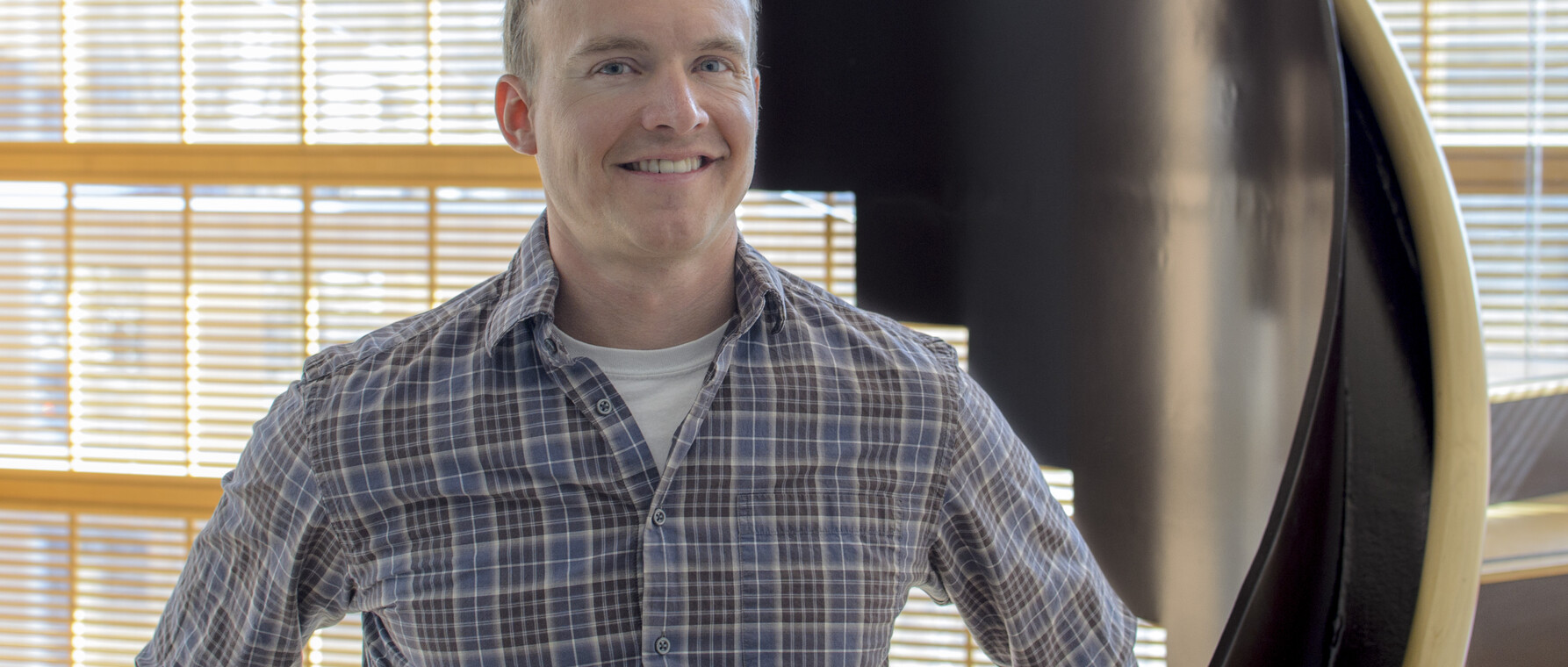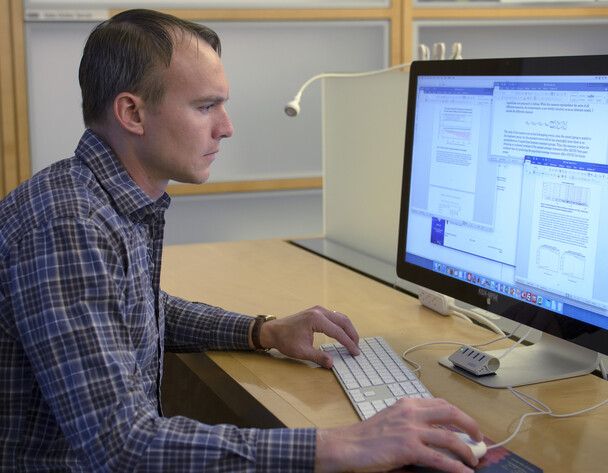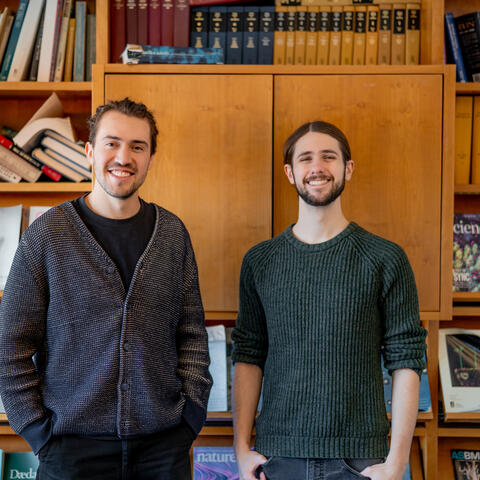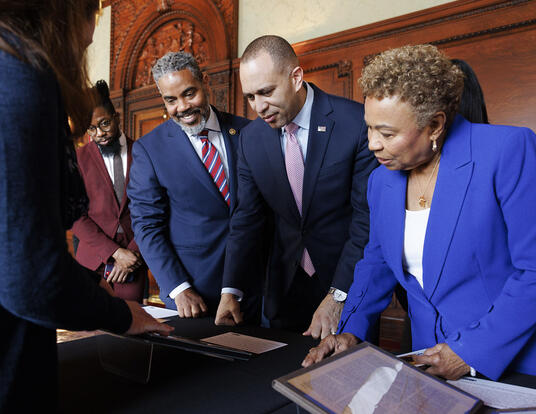The Benefit of Experience
How Peter Dyrud is using his military experience during his graduate career

When Peter Dyrud, a PhD candidate in public policy and president of the Harvard Graduate Council (HGC), organizes HGC events, he uses military mission planning methods. "We lay out the situation, the specific mission, execution, admin and logistics, command and communications," he lists off. These methods come naturally to Dyrud, a combat rescue officer in the US Air Force who served two tours in Afghanistan. "It’s definitely less stressful using them in a non-military environment," Dyrud acknowledges with a laugh.
Bringing Harvard Together
The HGC is the representative body for the 12 graduate and professional schools across Harvard. Dyrud, who became involved with the HGC as a G1, believes the core mission of the HGC is to bring students together. "There are so many students across Harvard University with so much to offer one another in terms of skill sets and ideas and yet often, we never interact." To accomplish this goal, the HGC hosts events, some of which are lecture-based, such as the Lectures That Last series where a professor from each of the 12 schools across Harvard presents a TED-style talk, which drew more than 500 students in February. Other events are more social, such as the Masquerade Ball and the Valentine’s Day Dance, where two years ago Dyrud met his wife Fargol.
The HGC’s role at Harvard, however, goes beyond event planning. "It’s also a way for graduate students to have a stronger collective voice when it comes to issues of shared concern.” One such concern is sexual assault and harassment; the HGC launched an initiative that led to the semiannual University-wide Student Leader Convening on Addressing Sexual Assault and Sexual Harassment at Harvard. "The convening brought together students from across the different schools to discuss these issues and think of appropriate solutions," Dyrud explains. Dyrud credits his leadership role as a Deputy Wing Honor Chairman while a cadet at the United States Air Force Academy and his experiences in combat rescue missions with preparing him for his role as HGC president. "It gave me a lot of perspective and helps me determine what is important and what isn’t," Dyrud says.
At Harvard, it’s very clear that the most important resource is the students, and the HGC’s purpose is to create situations that allow people from the different graduate schools to come together.

Return with Honor
Dyrud chose to pursue a career as a combat rescue officer because he was passionate about the mission and the potential to save lives. This same passion can also be found in his PhD research. "It was really important to me to make a direct impact on people’s lives with my studies," Dyrud says. After completing his PhD, Dyrud will return to the US Air Force, where his PhD research and international relations studies will be put to use in high-level, strategic planning as he alternates between leading operational Rescue Squadrons and staff assignments.
In one of his research projects, which investigates the deterrent effect of hostage operations on future kidnappings, Dyrud is using a data set compiled by the Combating Terrorism Center at West Point that focuses on the kidnappings of Westerners—defined as residents of the 35 countries in the Organization of Economic Co-operation and Development, or OECD—by residents of non-Western countries. This data set covers around 1,500 kidnappings that took place between 2000 and 2015. "There are a variety of outcomes when it comes to kidnappings," Dyrud explains. "Release, a ransom is paid, sometimes—unfortunately—a hostage is summarily executed, and sometimes governments decide to undertake a hostage rescue operation." Hostage rescue operations make up a small percentage of the total outcomes in the data set Dyrud is using, around 5 percent.
"My goal is to apply advanced statistical techniques to measure the potential causal impact of a Western country deciding to conduct a hostage rescue operation in response to a kidnapping," Dyrud says. He has found that an operation’s deterrent effect on the same captor group in the same country is highly statistically significant, compared to the counterfactual of “no rescue” operation, estimated to cause an average decrease of greater than one kidnapping per rescue operation during the following two years.
"This study cannot say definitively in a specific case whether you should use this tactic or not," Dyrud quickly points out. Each hostage situation is unique and before conducting a mission, governments must take a number of considerations into account, for example whether the hostage’s life is at risk and how much confidence they have in the location of the hostage. "However, I think the results do provide some insight on the higher level policy question of whether we should be focused on hostage rescue operations and continue to develop that capability," Dyrud continues.
In the United States, hostage rescue operations are part of a system within the Department of Defense called personnel recovery. The motto of the Joint Personnel Recovery Agency is "These things we do that others may live…to return with honor." Dyrud, who has played a role in hostage recovery and reintegration hopes that the conclusions of his analyses will one day be useful to the US government and ensure that more hostages can return with honor to their country and to their families.
Photos by Elena Iourtaeva
Get the Latest Updates
Join Our Newsletter
Subscribe to Colloquy Podcast
Simplecast



